Atsushi Sakurai is a Japanese musician and singer-songwriter. He has been the vocalist of the rock band Buck-Tick since 1985, previously being their drummer from 1983. He released the solo album Ai no Wakusei in 2004 and was also a member of Schwein alongside Hisashi Imai (Buck-Tick), Sascha Konietzko (KMFDM) and Raymond Watts. In 2015, he formed a solo project called The Mortal.
Buck-Tick is a Japanese rock band, formed in Fujioka, Gunma in 1983. The group has consisted of lead vocalist Atsushi Sakurai, lead guitarist Hisashi Imai, rhythm guitarist Hidehiko Hoshino, bassist Yutaka Higuchi and drummer Toll Yagami since 1985. The band has experimented with many different genres of music throughout their four decade career, including punk rock, industrial rock and gothic rock. Buck-Tick are commonly credited as one of the founders of the visual kei movement. They have released 23 studio albums, nearly all reaching the top ten on the charts.

Taboo is the fourth studio album by the Japanese rock band Buck-Tick. It was released on cassette, CD and as a two-record vinyl set on January 18, 1989 through Victor Entertainment. Taboo was digitally remastered and re-released on September 19, 2002, with two bonus tracks. It was remastered and re-released again on September 5, 2007. "Angelic Conversation" was re-recorded as the b-side to the group's single "M・A・D" in 1991. "Just One More Kiss", "Iconoclasm" and "Taboo" were later re-recorded for the compilation album Koroshi no Shirabe: This Is Not Greatest Hits (1992). "Iconoclasm" was covered by J for the Buck-Tick tribute album, Parade -Respective Tracks of Buck-Tick- (2005). Taboo peaked at number one on the Oricon charts, selling 298,620 copies in the first year.

Six/Nine is the eighth studio album by the Japanese rock band Buck-Tick. It was released in a clear purple case on May 15, 1995, through Victor Entertainment. It peaked at number one on the Oricon chart. It was certified gold in the same month and sold over 240,760 copies in the first year. Issay provides vocals for "Itoshi no Rock Star". "Rakuen " caused controversy because some of the lyrics were lifted from the Quran and later the album was re-issued with the offending part removed by November 1995 in a clear case. The album was digitally remastered and re-released on September 19, 2002, with a bonus track. The album remastered once again and released on September 5, 2007, in a clear red case.

Sexual XXXXX! is the second studio album by the Japanese rock band Buck-Tick. It was the group's major label debut and was released on vinyl, cassette and CD on November 21, 1987 through on Victor Entertainment. The album was digitally remastered and re-released on September 19, 2002, with a different cover. Sexual XXXXX! was remastered and re-released again on September 5, 2007. The songs "Do the I Love You" and "Hyper Love" were later re-recorded for the band's compilation album Koroshi no Shirabe: This Is Not Greatest Hits (1992). "My Eyes & Your Eyes" was also re-recorded for the b-side to their "Rendezvous" single in 2007. At the time of its release, the album peaked at number 33 on the Oricon charts and as of 2011, has sold 40,000 copies.

Hurry Up Mode is the debut studio album by the Japanese rock band Buck-Tick. It was released on both vinyl and CD on April 4, 1987 through Taiyo Records with the catalog number LEO 009. The CD version had two bonus tracks, "Vacuum Dream" and "No-No-Boy". It was later remixed and re-released in 1990, excluding the two bonus tracks. "Moonlight" was later re-recorded again for their 1992 compilation album Koroshi no Shirabe: This Is Not Greatest Hits. The album peaked at number one on the Japanese Indie Albums chart. The remix version was placed 1st on the Oricon albums chart, selling 212,430 copies.
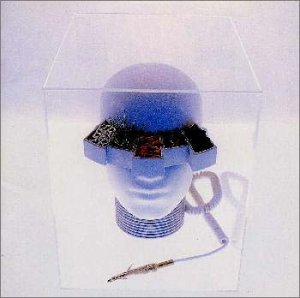
Sexy Stream Liner is the tenth album by Buck-Tick, their first on Mercury Music Entertainment, released on December 10, 1997. It reached number four on the Oricon chart with 78,820 copies sold. Starting with this album, Hisashi Imai started using the theremin in their sound. Like their previous album, Sexy Stream Liner is very influenced by the cyberpunk subculture.
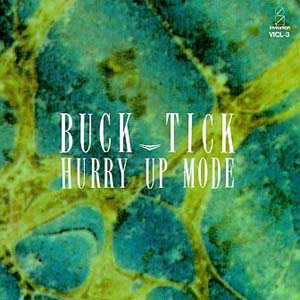
Hurry Up Mode is a remix album by Buck-Tick, released on February 2, 1990. It is composed of different versions of every song on their 1987 debut album Hurry Up Mode, except the two CD-exclusive bonus tracks. It reached number one on the Oricon chart, selling 212,430 copies. The album was digitally remastered and re-released on February 19, 2002, with two different bonus tracks. It was remastered and re-released again on September 5, 2007. "Moon Light" was later re-recorded once again for their 1992 compilation album Koroshi no Shirabe This Is Not Greatest Hits.

Sweet Strange Live Disc is the first live album by Buck-Tick, released on August 12, 1998. The songs were all recorded at the Nippon Budokan on either 8 or 9 May 1998. It reached number seventeen on the Oricon chart.

BT is the third compilation album by Buck-Tick, released on March 20, 1999. It compiles every single and B-side they released while signed to Victor Entertainment, except the live B-sides of "Die". It also includes a demo version of "Romanesque". It reached number sixteen on the Oricon chart. The album was remastered and re-released on September 5, 2007.
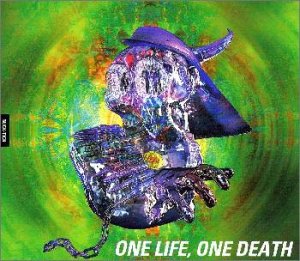
One Life, One Death is the 11th album by Buck-Tick and their first on BMG/Funhouse, released on September 20, 2000. The title comes from lyrics to "Cyborg Dolly: Sora-mimi: Phantom", which also mentions cloning sheep and is named after the famous Dolly. It reached number eleven on the Oricon chart with 30,170 copies sold. Starting from this album, Hisashi Imai started using computers when composing and he stated that he struggled to produce the sound he imagined.

At the Night Side is the third live album by Buck-Tick, released on April 7, 2004. Its content was recorded at four different concerts in three different places; Hibiya Yagai Ongakudo on June 28 & 29 2003, NHK Hall on April 10, 2003, and Shibuya-AX on April 30, 2003. It reached number thirty-four on the Oricon chart.

Catalogue 2005 is the sixth compilation album by Buck-Tick, released on December 7, 2005. It is an updated, expanded edition of Catalogue 1987–1995 that was released in 1995. However, it does not contain "M・A・D", "Die" or "Mienai Mono o Miyou to Suru Gokai Subete Gokai da". It reached number fourteen on the Oricon chart.

Catalogue 1987–1995 is the second compilation album by Buck-Tick, released on December 1, 1995. It compiles every single they released while signed to Victor Entertainment, except "Candy" which was released on May 22, 1996. It reached number eight on the Oricon chart. It was certified gold in the month of its release. The album was remastered and re-released on September 5, 2007, this time including "Candy" as a bonus track.
Hidehiko Hoshino, nicknamed "Hide", is a Japanese musician and songwriter. He is known as the rhythm guitarist for the rock band Buck-Tick since 1983.
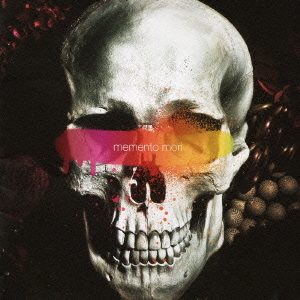
Memento Mori is the sixteenth album by Japanese rock band Buck-Tick, released on February 18, 2009. The limited edition came with a DVD of the making of the album. It reached number seven on the Oricon chart with 23,410 copies sold.

Razzle Dazzle is the seventeenth album by Japanese rock band Buck-Tick, released on October 13, 2010. Graphic artist Aquirax Uno provided the illustrations for the album's cover. The limited edition came with a DVD of music videos and an interview. It reached number six on both the Oricon chart and Billboard Japan, selling 20,384 copies.
Parade -Respective Tracks of Buck-Tick- is the first tribute album to Japanese rock band Buck-Tick, released on December 21, 2005. It collects cover versions of their songs by various artists. It reflected the influence Buck-Tick had on younger generation musicians in Japan, and later in 2007, some of these artists performed at a festival dedicated to the band, which was released on DVD. The album reached number 14 on the Oricon chart.

Catalogue Victor→Mercury 87–99 is the seventh compilation album by Buck-Tick, released on March 7, 2012. It compiles all of their singles released while signed to Victor Entertainment, from 1988's "Just One More Kiss" to 1999's "Miu". It and Catalogue Ariola 00–10 were released on the same day in celebration of Buck-Tick's 25th anniversary.
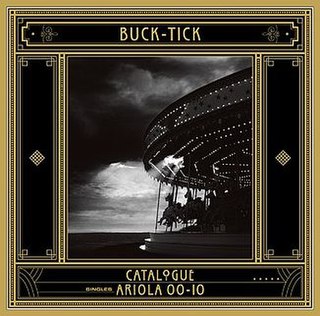
Catalogue Ariola 00–10 is the eighth compilation album by Buck-Tick, released on March 7, 2012. It compiles all of their singles released while signed to BMG/Funhouse and Ariola Japan, from 2000's "Glamorous" to 2010's "Kuchizuke". It and Catalogue Victor→Mercury 87–99 were released on the same day in celebration of Buck-Tick's 25th anniversary.
















